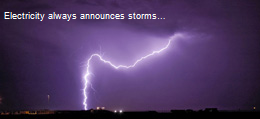NEXOS Y CONECTORES ÚTILES
I. PREPOSICIONES DERIVADAS DE PARTICIPIOS DE PRESENTE
According to (según): According to him, the taxes
are not so high.
Regarding to (con relación a): Regarding to the
third problem, it is better to ask for help.
Concerning (referente a): I received a letter
concerning their plans.
Belonging to (perteneciente a): He did not receive
things belonging to him.
II.
PREPOSICIONES COMPUESTAS
Along with (junto a/con): John, along with his
family, thinks that it is better to leave.
As far as (hasta; lugar): Walk as far as
the bank which is over the corner.
Apart from (lejos de): Don´t run away from me!
Because of (a causa de): We stayed at home because
of the rain.
By dint of (a fuerza de): By dint of hard work, he
managed to pass his exams.
Close to (cerca de): Don´t light a fire close to
the baby.
Due to (debido a): Due to his generosity, they
could build the new hospital.
Except for (excepto) Everything was destroyed,
except for the garden.
Far from (lejos de): Far from needing help, he
was doing it very well.
For the sake of (por consideración a): They decided to
stay at home for the sake of their parents.
For want of (por falta de): For want of something.
In addition to (además de): In addition to his job, he
also sells cars.
In case of (en caso de): In case of danger, close
the windows and leave the room.
In comparison with (en comparación con): In comparison
with my car, his is much bigger.
In compliance with (de acuerdo con): We did it in
compliance with the instructions.
In favour of (a favor de): If you are in favour of the
new law of education.
In front of (delante de): I parked my car in front
of the bar.
In order to (para, con el fin de que): I stopped in
order to fill in the tank.
In the middle of (en medio de): He lost it in the middle
of the party.
In spite of (a pesar de): I escaped in spite of the
police dogs.
Instead of (en vez de): I drink water instead of
coke.
On account of (debido a, a causa de): It crashed on
account of a faulty engine.
On behalf of (por medio de, en representación de): I
want to say something on behalf of my friends.
On top of (encima de): It
could land on top of that building.
At first, in the beginning (…) in the end: se
emplean en narraciones, cuando empezamos a contar la historia.
In the beginning, Mark fell in love with
Susan, but they didn´t get on well. Then, they started going out together…. and
in the end they got married in summer.
First, in the first place, to
begin with (…) finally: se emplean para comenzar una lista de argumentos en
una redacción de opinión (argumentación)
To begin with, I am against the new law of education because… and
finally, I think that they should pay more attention to the pupil´s sake and
less to economic interests.
At the end. Para lugares
She was waiting for me at the end of
the corridor.
Eventually (finalmente): After a long period of time.
They spent a lot of time together but
eventually they broke up.
At last comes at the end of a series of events.
For the time being: (de
momento) Until things
change
You are not requested to pass a listening test at the end of the
course, so for the time being we won´t practise this exercise in class.
In the meantime: (mientras tanto) Meanwhile
In due course = in the future, at the proper time.
I will explain the third
conditional in due course.
Now and then (de vez en cuando) From time to time, at irregular
intervals.
These days (hoy en día) At the present time
In those days (en aquellos días) It
refers to the past
Nowadays Refers to the present in contrast to the past.
At present/at the present time / at the moment: now
About (por, alrededor de): I enjoy
travelling about the country.
Above (sobre, por encima de): The
plane is above the clouds.
Across (a través de, al otro lado de; por
una superficie): Go to the bar across the street./Can you get across the
river?
After (después de, tras): He is
running after the bus.
Against (contra): Stand against the
wall.
Along (a lo largo de, por): Are there
any obstacles along the river?
Among, amongst (entre más de
dos): There was a letter among his papers.
At (en): I’ll be at the office till
two.
Before (delante de, ante): He appeared
before the judge.
Behind (detrás de): There is a garden
behind the house.
Below (bajo, debajo de): Don´t hit him
below the waist.
Beside (al lado de, junto a): Come and sit
beside me.
Between (entre dos): He has nothing
between his ears.
Beyond (más allá de): The town is
beyond that range of mountains.
By (al lado de, junto a): Let`s sit
by the stream.
Down (por, abajo de): My house is
just down that street/We sailed slowly down the river.
From (de, desde): He comes from Italy/The man
from the police department is here.
In (en, dentro de): Is he in his
office?/He is working in Burgos.
Inside (dentro de): Have you been
inside that church?
Into (en, con movimiento): He fell
into the water.
Near (cerca de): Do you live near the
sea?
Off (fuera de, de): He has cut the
roof off their car /Here is a piece off the end of the loaf.
On (sobre, en): Don´t sit on that
chair/There is a book on the table.
Opposite (frente a, cara a cara): We live
opposite the church.
Out of (fuera de): Get out of my
house/It is coming out of the tunnel.
Over (por encima de, sobre): We have
a good roof over our heads/Don´t argue over it!
Past (por delante de): He ran past my
house.
Round (alrededor de): He is building a
wall (a)round his house.
Through (a través de, por medio de; a
través de un medio, espacio o volumen): I can`t see through the
window/He got rich through hard work.
To (a, hacia): Do you go to
school?/ I am writing to him.
Towards (hacia): He came towards me
angrily.
Under (debajo de, bajo): There is a
cat under the table.
Underneath (por debajo, bajo,
debajo de): There is a mine underneath this town.
Upon (tiene el significado de on, en
contextos más formales o en frases hechas): Upon my word/Once upon a time.
PREPOSICIONES
QUE MUESTRAN OTRAS CIRCUNSTANCIAS
About (acerca de): This movie is about
birds.
As (como, de, en función de): He
works as a policeman.
Like (como, parecido a): He works like a
slave.
By (por medio de, cerca de, por,
etc.): He made a lot of money by robbing
people. It was built by John. By your interest, you
can borrow it.
For (para, por): Is this for
cleaning?/ He was punished for being so rude.
On (sobre, al): Have you read the
article on New York?
On arriving, call me up.
Out of (de
entre): Eight out of ten people….

 See the full PicLit at PicLits.com
See the full PicLit at PicLits.com
